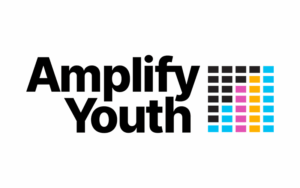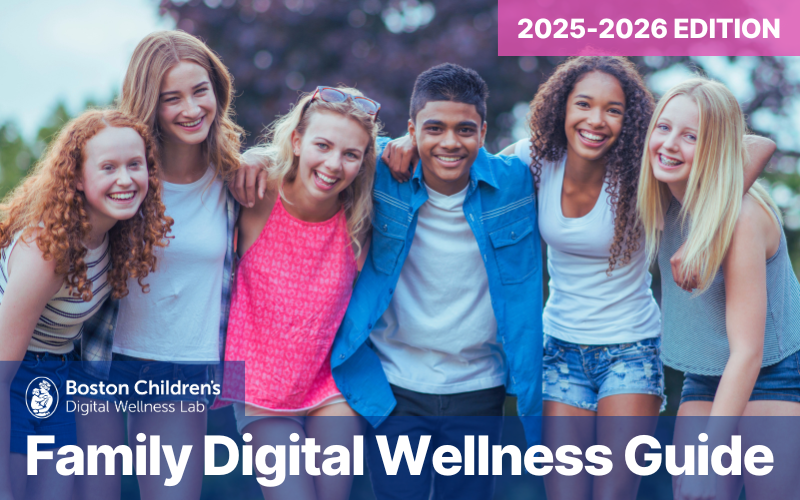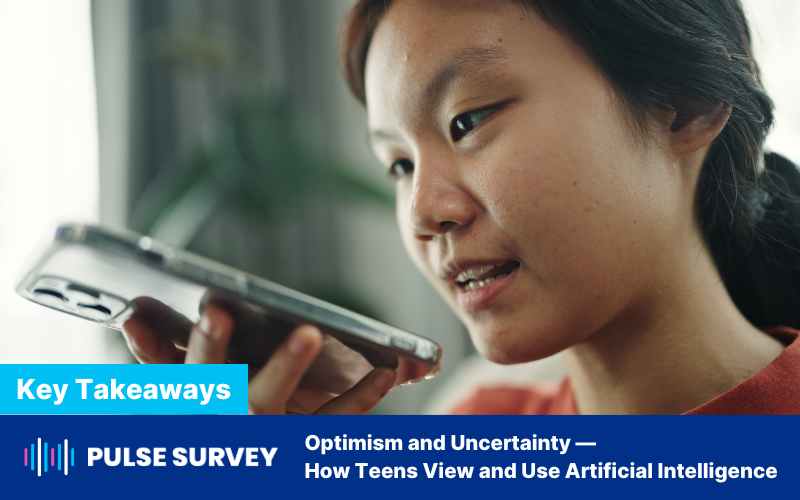Introduction
AI-powered tools such as Voice Assistants (VAs) and Generative AI (GenAI) are becoming deeply integrated into young people’s lives, shaping how they learn, create, and interact with the world. In our latest Pulse Survey: Optimism and Uncertainty – How Teens View and Use Artificial Intelligence, we explored how teens are navigating the many opportunities and challenges that come with using AI tools.
We reached out to teens to better understand the impacts of emergent AI technologies on the lives of young people by addressing both the ways teens think about these tools and their existing knowledge about how to use AI-powered tools responsibly. Over 1,400 adolescents (ages 13-17) from across the US responded to our survey asking questions in three key areas:
- How are teens using AI-powered tools like Voice Assistants and Generative AI?
- What are teens’ attitudes and perceptions surrounding these AI technologies?
- What knowledge, guidance, and instruction are teens currently receiving related to the use of AI?
The final report discusses gaps in teens’ access to, and knowledge of, AI tools, and highlights potential future directions for generating guidelines and policies that will enable adolescents to fully and ethically engage with these tools.
Key Takeaways
What We Asked
We asked participants about how they use Voice Assistants (VAs) and Generative AI (GenAI) tools.
What We Found
The vast majority of teenagers we surveyed have used VAs (78%), and more than half of teens have used GenAI (54%).
A majority of teens we surveyed reported having a lot of experience with Voice Assistants, and that they frequently use this technology for listening to music, looking up facts or exploring topics they’re curious about, and getting help with educational activities (i.e., homework).
Most of the teens who responded have at least heard of GenAI, and many use it almost every day. More than half said they have used GenAI tools like ChatGPT, Gemini, or MetaAI, and another third have heard of these tools but never used them. Many teens who are users of GenAI use it regularly, with almost one-third using it every day and another third using it a couple of times a week. Respondents reported that they use GenAI primarily to look for information, experiment with it, use it as a research tool for school, and for help with writing assignments.
Top 3 uses of Voice Assistants, with adolescents doing each activity at least a few times a week:
71%
use Voice Assistants to listen to music
61%
use Voice Assistants to look up a specific fact
59%
use Voice Assistants to explore a topic they are curious about
Top 3 uses of Generative AI, with adolescents doing each activity at least a few times a week:
52%
use GenAI to search for information / answer a question
45%
use GenAI to experiment with the tool with no specific goal in mind
45%
use GenAI for research for homework / school projects
What We Asked
We asked teens about their concerns regarding AI tools.
What We Found
Teens reported being concerned about their privacy when using both VAs and GenAI.
When thinking about VAs, respondents expressed concern about keeping their information private, including worries that the technology may be constantly listening to them. Teens also expressed worry about these tools giving them inaccurate or biased information. Though many teens are adopting GenAI tools in their daily lives, most expressed concerns about how these tools could be misused. Almost three-quarters of participants shared that they are concerned about keeping their personal information private, as well as about the possibility of their likeness being used to create deepfakes. Teens were also less likely to trust the accuracy of AI-generated content compared to that provided by more traditional search engines (e.g., Google, Bing) and other sources when searching for information.
Top 3 concerns regarding Voice Assistants, showing moderate to extreme concern:
67%
are concerned about Voice Assistants keeping their personal information private
63%
are concerned about Voice Assistants giving inaccurate or biased information
63%
are concerned about feeling like they’re always being listened to by Voice Assistants
Top 3 concerns regarding Generative AI, showing moderate to extreme concern:
70%
are concerned about GenIA being used to create deepfakes
70%
are concerned about GenAI keeping their data and personal information private and secure
68%
are concerned about GenAI being used in scams
What We Asked
We asked teens about how they use VAs and GenAI, and how they think using AI shapes their learning, productivity, creativity, and social skills.
What We Found
We found that teens use VAs and GenAI for specific and different purposes.
Young people report using VAs as functional tools for listening to music, looking up specific facts, and checking for updates such as the weather, news, or sports. Teens reported using VAs less frequently for activities related to personal or social matters. A majority of respondents reported that they believe that VAs improve their ability to do their schoolwork and their ability to focus on educational tasks.
Teens reported that they consider GenAI to be a tool that can improve their imagination, learning, and productive capabilities. Almost three-quarters of respondents noted that GenAI improves their curiosity and desire to learn, and two-thirds believe that these tools will strengthen their imagination and creativity. Roughly half of teens consider GenAI to be helpful for strengthening their extracurricular activities or hobbies, their social skills, and their ability to think for themselves.
What We Asked
We asked teens what they think about AI’s potential for engaging in interpersonal connection.
What We Found
The teens we surveyed believe that both VAs and GenAI tools have social capabilities and can engage as social actors.
Over half of teens agreed that VAs, which work best when used for simple, conversational interactions through spoken language, can engage with them as a friend.
Almost half of teens agreed that GenAI tools can engage with them as a friend. These tools are rapidly rolling out continually improving conversational capabilities, but are newer to the market than some of the more common VAs (e.g., Alexa, Echo, Siri).
58%
of teens agree that Voice Assistants can act as a friend
53%
of teens believe that GenAI Agents can act as a friend
What We Asked
We asked teens how they’re learning about AI tools– including guidance and instruction.
What We Found
While many teens are familiar with AI, they are not fully confident in how to best use these tools, especially GenAI, and report that they do not receive enough guidance in using these tools.
Our findings highlight a notable gap in teens’ digital literacy education: we found that many teens never or rarely check the information they find using AI tools, and less than half of teens have received any formal training related to how to recognize bias or misinformation in AI-generated content.
We also found that, while many survey participants’ use of AI is not monitored or restricted by their parents, those who did report parental rules around use overwhelmingly agreed with these rules or expectations. A majority of surveyed teens reported that they believe it is important for young people to learn how to use GenAI in ways that follow laws and rules about plagiarism.
These findings indicate powerful opportunities for the development of comprehensive tech education touchpoints that will support teens’ skills in using AI in responsible and effective ways as these tools become ever-more ubiquitous in their education and work lives.
In Conclusion
Teens report a sense of optimism about AI’s potential to improve their learning, creativity, and productivity, but they are still learning how to balance its benefits with concerns around privacy, accuracy, bias, and potential misuse. Our findings underline the importance of equipping young people with the tools, education, and support they need to engage with AI as these tools become increasingly interwoven into their everyday lives. They recognize the significance of AI to their future success, and are eager to participate in conversations about harnessing its full potential in ways that are both effective and ethical.
Audio “Deep Dive”
In the spirit of experimenting with the latest AI tools and commercially available technology, we tasked Google’s Notebook LM (which we trained on the findings from this survey and the contents of our website) with creating an audio “Deep Dive” of the study results and key takeaways. We were so impressed with the entirely AI-generated outcome, we wanted to share it.
Note: there are a few instances where while factually correct, some statements lacked context. Please keep this in mind, and always refer to the full results for official findings and analysis.
This AI-generated audio file is intended for informational purposes only and should not be considered professional advice. Listener discretion advised.








